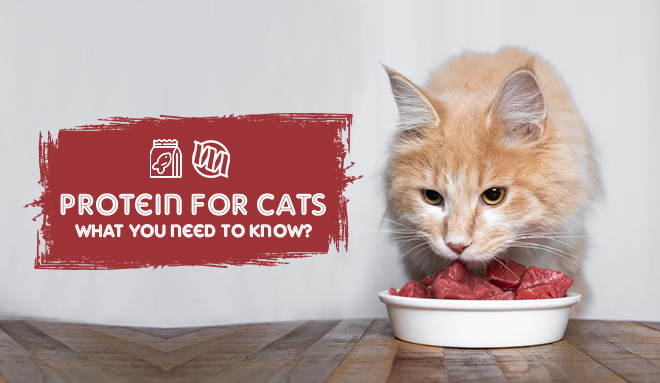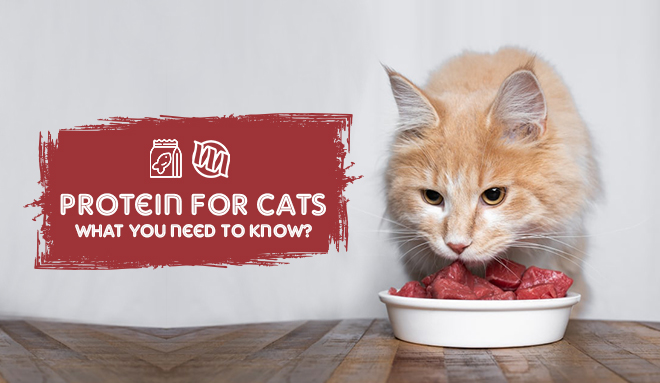The importance of a protein-rich diet for humans is known to all. But did you know protein is vital nutrition for your cats too? Cats need more protein compared to many other domestic pets. We all want the best food for our cats, but choosing the right food product from the plethora of options can make you overwhelmed and confused.

This blog will guide you on why your cat needs protein and how to fulfill this requirement.
Nutrition Cats Need
Majorly, there are five types of nutrients your cat needs, which are as follows:
- Protein
- Carbohydrates
- Fats
- Minerals
- Vitamins
Out of these, nutrients like protein, fat, and carbohydrates can be used as energy sources.
How do Protein Deficiencies Affect Cats?
If cats do not get the right amount of protein in their diets for a longer period, it can result in several health-related issues like bad fur conditions, malnourishment, weight loss, lethargy, muscle loss, and more.
If your cat’s diet consists of more carbohydrates and less protein, your cat is more likely to turn obese, which can result in many health issues including diabetes, digestive upsets, and large feces that are difficult to discard.
Ways to Fulfill Protein Requirements in Cats
Buy protein-rich food for your Cats
If you want to ensure that your cat food contains enough protein, develop the habit of checking nutritional value while purchasing cat food.
Animal protein is the right protein
Cats have a unique digestive system. Digestive enzymes are made to break down animal tissue that they get from eating meat. On the other hand, a protein that is received from non-meat products like soybeans, vegetable oil, and grain is difficult to break down. Vegetable protein may also lower their metabolism, making them weak and lean.
High protein food products majorly include animal meat like beef, lamb, turkey, and chicken. Animal protein is a highly concentrated protein that is more beneficial for cats compared to vegetable protein.
Feed Wet and Cooked Food
Another lesser-known fact about cat food products is that protein content is higher in wet food products compared to dry.
You can also improve your cat’s overall protein intake with cooked and unprocessed foods like grilled chicken. However, make sure not to feed many seasoned, spiced, and sauced food products to your cat as they can be toxic to your felines.
Bottom Line
Finally, if you are not sure whether the food content you are feeding to your cat is making any big difference in its health, it is best to consult a vet for a protein-rich diet that suits your cat. Overall, it is beneficial to give 30-40% protein food content to your cat on a daily basis.


